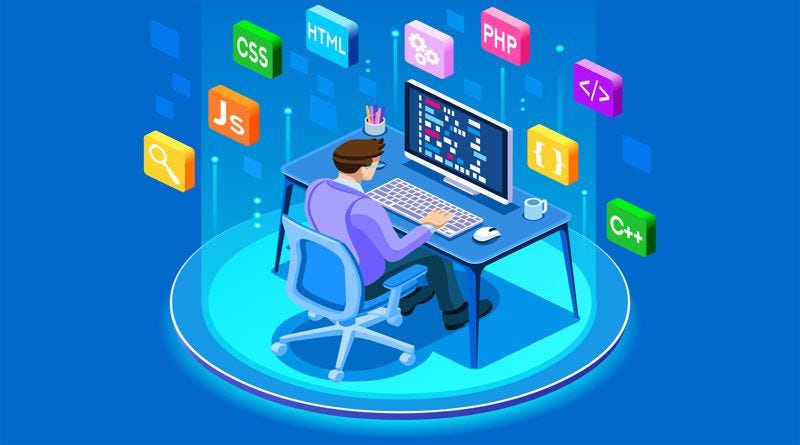


A full-stack web developer is a person who can create both the front-end and back-end of a web application.
The future of a full-stack web developer is bright and promising, given the growing reliance on digital solutions across industries. As technology evolves, full-stack developers will continue to be highly valued for their versatility, adaptability, and ability to build and manage comprehensive web applications. Here’s an in-depth look at the future of full-stack web development:
Increasing Demand Across Industries
Digital Transformation: Businesses in healthcare, finance, retail, education, and entertainment are transitioning to digital platforms, driving demand for full-stack developers.
Startups and SMEs: The startup ecosystem thrives on full-stack developers who can manage multiple roles and deliver end-to-end solutions efficiently.
Enterprise-Level Applications: Large companies need full-stack developers for maintaining and upgrading legacy systems and creating scalable solutions.
Rising Salaries and Global Opportunities
Competitive Compensation: Full-stack developers are among the highest-paid professionals in tech, with salaries increasing as demand grows.
Remote Work Trends: The remote work culture allows full-stack developers to work for global companies without relocating, widening career opportunities.
Freelance and Contract Work: Platforms like Upwork, Toptal, and Fiverr provide lucrative opportunities for skilled full-stack developers.
Advancement in Tools and Frameworks
Efficient Development: Modern tools and frameworks, such as React, Angular, Node.js, and Next.js, streamline the development process, making full-stack development faster and more efficient.
Cloud-Native Tools: Integration with platforms like AWS, Google Cloud, and Azure ensures full-stack developers can deliver scalable and robust applications.
Microservices and Serverless Architecture: These technologies enable developers to create modular, cost-effective, and maintainable applications.
Integration of Emerging Technologies
AI and ML: Full-stack developers will integrate artificial intelligence and machine learning into web applications for personalization, automation, and predictive analytics.
Blockchain: Decentralized applications (dApps) and smart contracts will open new avenues for full-stack developers in the blockchain space.
IoT and Edge Computing: With the growth of IoT devices, full-stack developers will contribute to building interfaces and back-end systems for connected ecosystems.
Growth of Progressive Web Applications (PWAs)
Enhanced User Experience: Full-stack developers will increasingly build PWAs to provide app-like experiences on the web.
Cross-Platform Development: PWAs reduce development time and cost by working seamlessly across devices, making them a preferred choice for businesses.
Shift Toward Headless Architecture
API-Driven Development: Headless CMSs and commerce platforms will empower full-stack developers to create highly customizable front-end experiences.
Omnichannel Solutions: Developers will design applications that work across web, mobile, IoT, and other platforms using the same back-end.
Focus on Security and Privacy
Data Protection Regulations: Developers will be expected to build secure applications compliant with global privacy standards like GDPR and CCPA.
Secure Development Practices: The increasing importance of cybersecurity will make full-stack developers more involved in implementing robust security measures.
Increasing Role in DevOps
End-to-End Ownership: Full-stack developers will take on DevOps responsibilities, such as CI/CD pipelines, containerization, and cloud deployments, to manage the full software lifecycle.
Infrastructure as Code: Familiarity with tools like Docker, Kubernetes, and Terraform will become essential.
Visit here- Full Stack Developer Course in Pune
